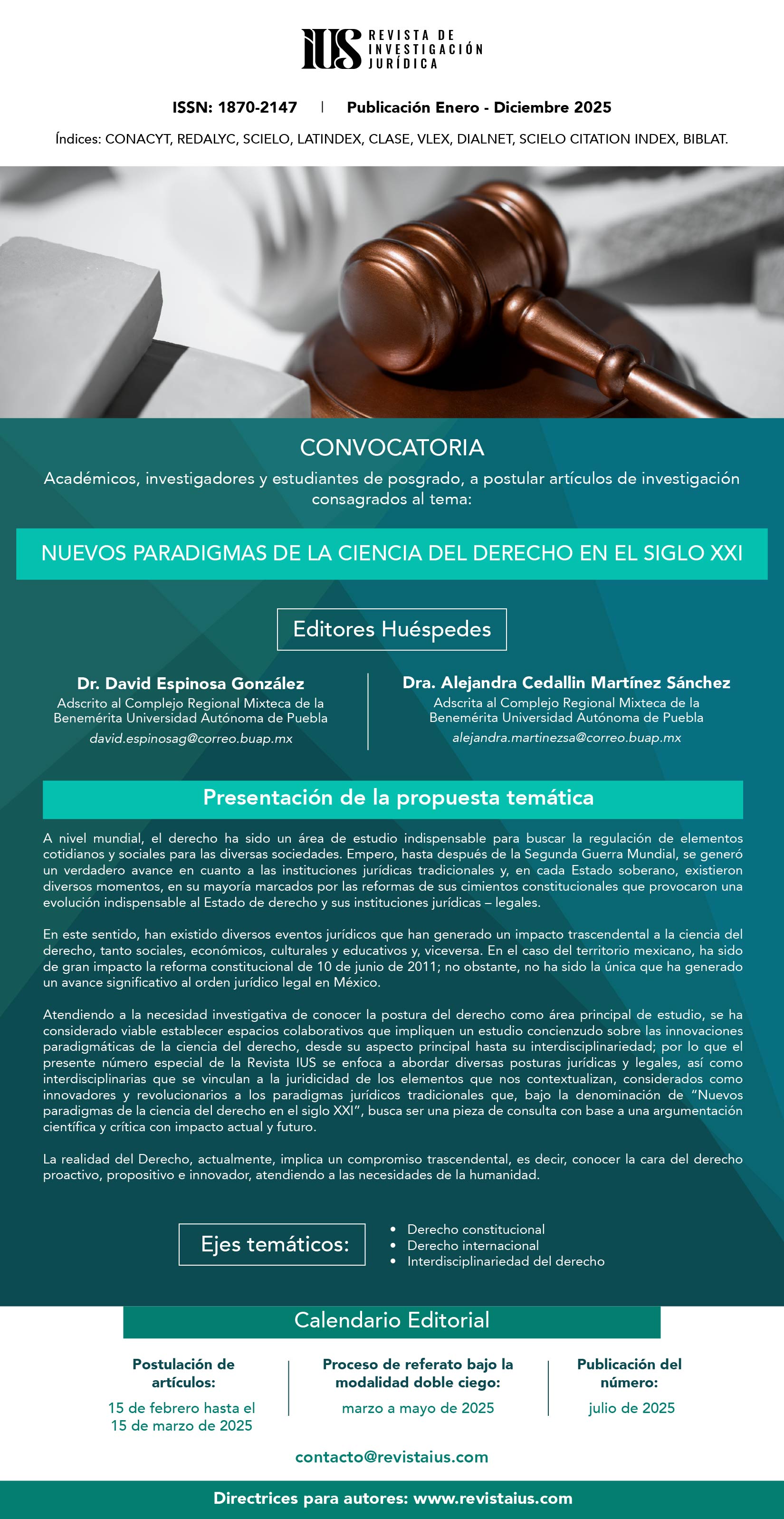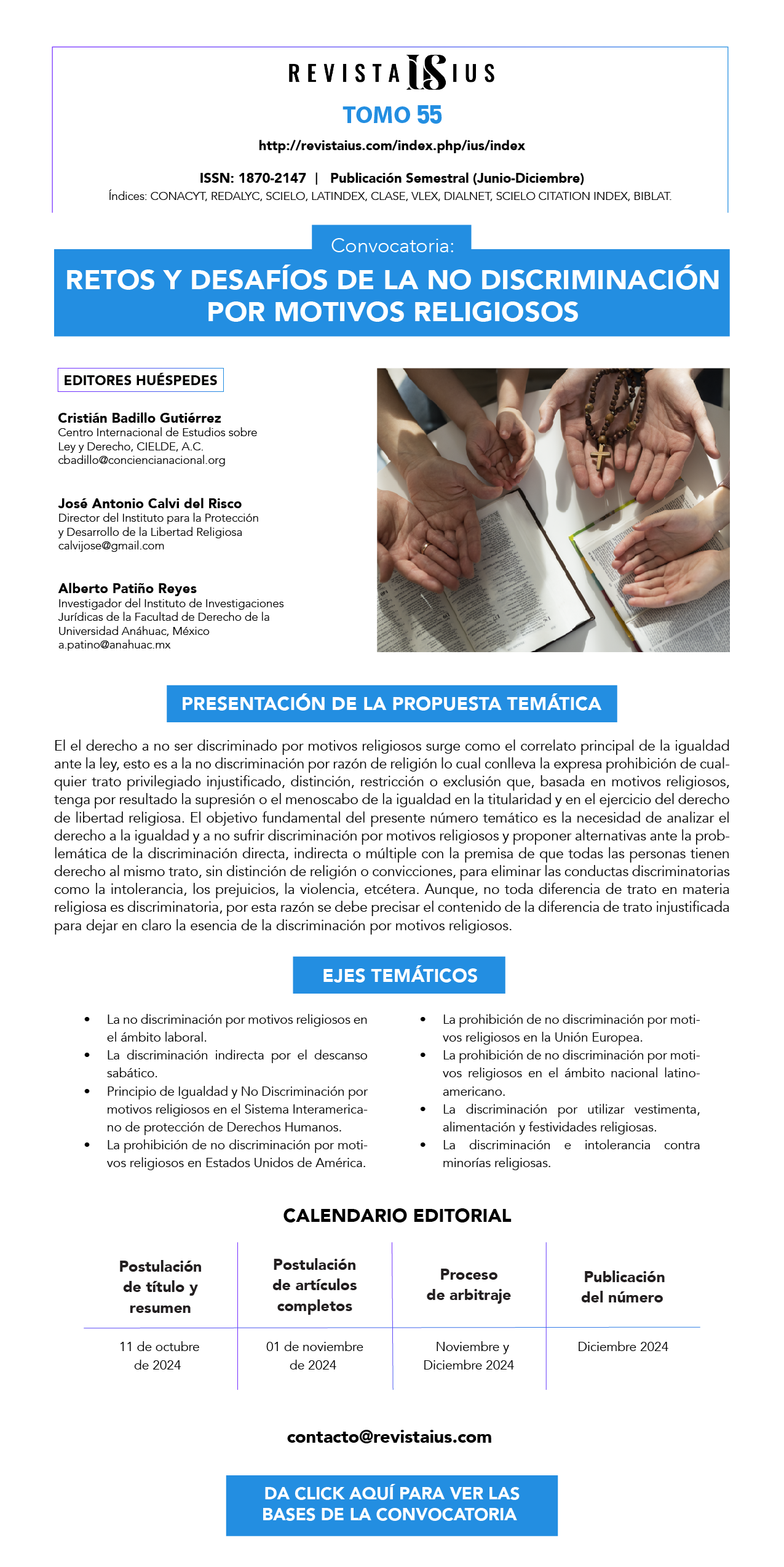El derecho de protección de datos personales en los sistemas de inteligencia artificial
DOI:
https://doi.org/10.35487/rius.v15i48.2021.743Keywords:
Inteligencia artificial, regulación, derechos humanos, derecho a la privacidad, derecho de protección de datos personales.Abstract
El objetivo del documento es llevar a cabo un análisis de la inteligencia artificial bajo la perspectiva legal, particularmente desde la visión del derecho de protección de datos personales, para identificar los desafíos que existen para la salvaguarda de este derecho humano. La aportación, se desarrolla a partir de una revisión documental que permite establecer el estado del arte, y describir la forma en la que se manifiesta el fenómeno de la inteligencia artificial, bajo una visión jurídica. A partir de esto, se determina el impacto de los sistemas de inteligencia artificial al derecho a la privacidad, analizando las implicaciones del derecho de protección de datos personales en esta técnica, para así hacer propuestas especialmente dirigidas a los Estados, para asumir una rectoría que permita la efectiva garantía del derecho de protección de datos personales de los usuarios de inteligencia artificial, y por ende, la protección de la dignidad de la persona frente a la técnica.
Downloads
Downloads
Published
Issue
Section
License
Revista IUS, published by the Legal Sciences Institute of Puebla A.C., is distributed under the Creative Commons Attribution-NonCommercial 4.0 International (CC BY-NC 4.0) license.
We authorize collaborators to upload a copy of their published work on their personal websites or any Open Access repository, provided that Revista IUS is specifically cited as the original source, indicating the year and issue of the respective example and adding the link to the webpage on which this publication can be freely consulted in toto and without charge: http://www.revistaius.com
Readers are free to:
Share, copy and redistribute the material via any medium or format.
The licensor cannot revoke these freedoms as long as you follow the license terms.
Under the following terms:
Attribution: You must give appropriate credit, provide a link to the license, and indicate if changes were made.
You may do so in any reasonable manner, but not in any way that suggests the licensor endorses you or your use.
NonCommercial – You may not use the material for commercial purposes.
If you remix, transform or build upon the licensed material, its distribution is not permitted.
Charges for managing articles: Revista IUS will not charge for receiving, processing or publishing articles (Article Processing Charge, or APC) submitted by authors.





